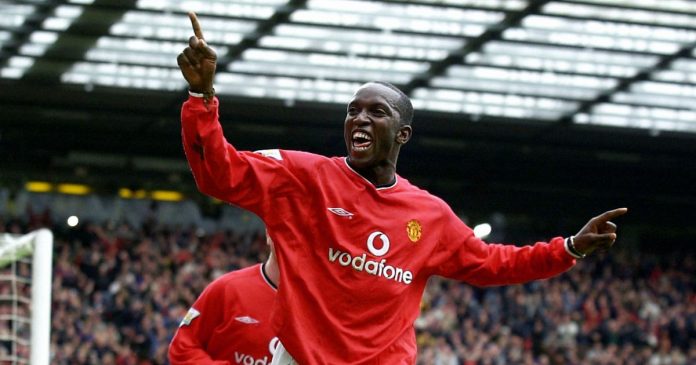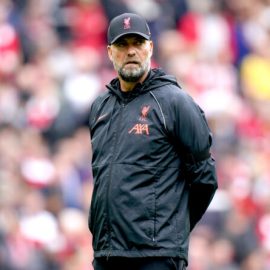Now that the World Cup has finished and we are in the midst of the summer lull, the residue of broken dreams and weary familiarity with England’s failure has inevitably given way to the utopian fantasies and manufactured optimism of transfer activity.
Let me start off by saying that I too, am a sucker for a bit of transfer gossip. Despite the obvious fact that searching for truth in amongst the rumours is one step short of trying to turn base metal into gold, it has an allure which is hard to ignore. The more improbable and fantastical the story, the more those parts of the brain in the prefrontal cortex responsible for imagination ignite and excite the susceptible reader.
And since the tabloids are awash with this nonsense, they make for a particularly ribald guilty pleasure in the summertime; the sort that, like fast food, makes you yearn for a good dousing in the shower afterwards to wash away the transgression.
But there is a reason that salacious transfer gossip works on us in the way it does, and it has to do with the very structure and function of the modern capitalist economy – the hallmark of which is the constant stimulation and recycling of desire; the need to keep people wanting and always looking upwards; the constant use of utopian visions as an advertising technique to sell manufactured dreams, and furthermore, the necessity of money and success and the constant search for it as a prerequisite for happiness – that most potent and false idol of the market place.
Does any of this sound familiar? So the Spurs fan will read they are on the verge of signing Rivaldo or Ronaldo or Ronaldinho, Villa fans will hear they’re in for Wesley Sneijder or David Villa (whilst Ashley Young is off to Real Madrid), Juan Riquelme’s going to Birmingham, Dimitar Berbatov’s heading to Newcastle, Zinedine Zidane’s coming out of retirement to play for Rangers, and David Beckham’s off to West Ham – all of it predicated on tenuous links, false statements from “sources close to the player”, or leaps of diseased logic (Manchester United need a defensive midfield player, therefore they will sign Yaya Toure).
And the football fan dreams and dreams, and spends his money and then, when reality bites, those dreams fall to the floor and shatter into a thousand pieces and are swept up and repackaged as some other Brazilian wonderkid with a penchant for English football and a contractual impasse.
Of course, sometimes louche hacks are led astray by agents who wish to scare up better wages for their player or simply invent smokescreens to hide their real business, but for the most part, printed rumours are rubbish; albeit rubbish that sells.
The trouble is, if inventing transfers takes little or no effort and sells papers, why on earth not just make it up? So goes the dilemma for the modern reporter.
Joe Cole is a good case in point. The proliferation of recent rumours included these three clubs: Tottenham, Arsenal and Manchester United. Who signed him? Liverpool. Simon Kjaer, the Danish defender who just moved from Palermo to Wolfsburg is another classic example: he was linked heavily with untold English clubs in the weeks preceding his move to where? Germany. And these are players who actually were leaving their clubs, which doesn’t say a great deal for the standard of reporting where transfer rumours are concerned.
But anyway, back to truth.
In effect, the most plausible way of identifying those rumours that may actually bear resemblance to actual events is to discount – unless from the player themselves – the source, tone, and plausibility of the story, and pay attention only to the frequency of it, i.e. the amount of times it appears in the press.
It is often the case that those transfer stories that refuse to go away, such as Yaya Toure to Manchester City, Cristiano Ronaldo to Real Madrid, (possibly) ‘Cesc Fabregas to Barcelona, Owen Hargreaves to Manchester United or Joleon Lescott to Manchester City are the ones that eventually occur. But the trouble is, these were all tortuous sagas that had a very real cumulative negative on the selling club – another by-product or real or imagined transfer rumours – and ended up boring most people to death.
So the advice runs thus: stay away from transfer rumours and respond only to newspaper articles including a non-photo shopped picture of said player holding said new shirt above his head, anything else is more than likely mended with bluff and falsehood and in the interests of inducing feverish hands into rapidly diminishing pockets.
Sounds good doesn’t it? Respond only to fact, the trouble is, if I hear Aston Villa are a short flight to Barcelona away from signing Lionel Messi, I’ll more than likely be a short step away from a local newspaper stand, and you can bet the tabloids will have a bigger and more salacious spread to spark that intoxicating mix of desire and imagination. Of course its nonsense I’ll say, but just imagine if it isn’t.
Add Sportslens to your Google News Feed!






